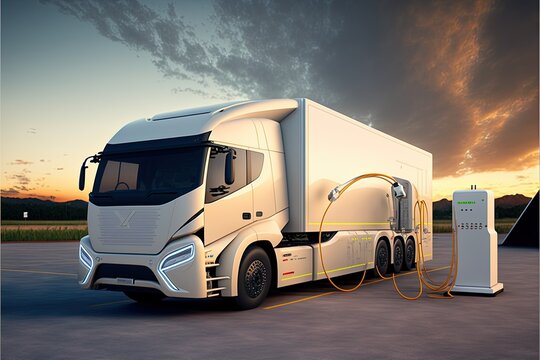Subscribe to our newsletter
Nyhetsbrev:

Electric Drive in Trucks: Challenges and Why the Combustion Engine Is Still Superior
Electric drive has made significant progress in the passenger car sector but has started to lose momentum. When it comes to trucks, we face several unique challenges that make it a long road before electric drive becomes a practical alternative.
Here, we outline why the combustion engine remains superior in the trucking industry and why the shift to electric drive will take time.
1. Energy Density and Range
One of the biggest challenges for electric trucks is the energy density of batteries. Trucks require enormous amounts of energy to transport heavy loads over long distances. Currently, batteries do not have sufficient energy density to compete with diesel fuel in terms of range and load capacity. A study from MIT shows that batteries have an energy density of about 250 Wh/kg, compared to diesel fuel's 12,000 Wh/kg. An electric truck would need to stop frequently for recharging, which is not practical for long-haul transportation.
2. Charging Infrastructure
While charging infrastructure for passenger vehicles is expanding rapidly, the situation is different for trucks. Trucks require special charging stations capable of handling much higher power outputs. Tesla Semi, for example, requires charging stations that can deliver up to 1 MW of power. Additionally, these charging stations need to be strategically placed along highways and at major logistics hubs. Building this infrastructure is costly and time-consuming. According to a report from the International Energy Agency (IEA), significant investments are needed in charging infrastructure to support a larger fleet of electric trucks.
3. Cost
Electric vehicles are still more expensive to manufacture than conventional vehicles, and this is even more true for electric trucks. Batteries are expensive, and the initial investment cost of purchasing an electric truck is much higher than for a diesel truck. According to an analysis from BloombergNEF, the cost per kWh for batteries remains relatively high, making electric trucks significantly more expensive than diesel trucks. While operating costs may be lower in the long run, the high initial cost is a major barrier for many transport companies.
4. Weight and Volume
Batteries are not only expensive, they are also heavy and bulky. For trucks, this means that a significant portion of the allowed payload weight must be dedicated to the battery, reducing the amount of cargo that can be transported. A study from the National Renewable Energy Laboratory (NREL) shows that batteries can account for up to 20% of a truck's total weight, which is a major disadvantage for freight transportation.
5. Technical Development and Reliability
Combustion engines have undergone over a century of development and refinement. They are highly reliable, and the technology is well-proven. Electric drive for trucks is still in its infancy and will require many years of research and development before it can match the reliability and efficiency of combustion engines. According to a report from McKinsey & Company, there are still many technical and economic hurdles to overcome before electric trucks can become a practical reality.
The Superiority of the Combustion Engine
Despite the environmental benefits electric drive may offer, the combustion engine has several characteristics that make it difficult to replace in the trucking sector:
Summary
While electric drive is the future for many passenger cars, it will take time before we see a significant shift in the trucking industry. The advantages of combustion engines in terms of range, cost-effectiveness, and reliability make them the best option for heavy transportation. As we see progress in battery technology and charging infrastructure, the combustion engine will continue to dominate the trucking sector for many years to come.
Sources:

